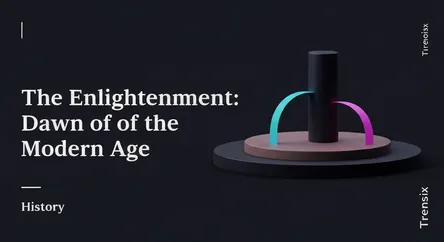History
The Enlightenment: Dawn of the Modern Age

Discover the Enlightenment, the 18th-century intellectual movement that championed reason and reshaped politics, science, and society forever.
What is it?
The Enlightenment, also known as the Age of Reason, was a powerful intellectual and cultural movement in Europe during the 17th and 18th centuries. It championed reason, science, and individualism over tradition, superstition, and blind faith. Thinkers like John Locke, Voltaire, and Isaac Newton argued that knowledge should come from experience and observation. This movement promoted groundbreaking ideas such as liberty, progress, religious tolerance, constitutional government, and the separation of church and state. At its core, the Enlightenment was a profound shift in how people understood the world and their place in it, advocating for human reason as the primary source of authority and legitimacy.
Why is it trending?
The Enlightenment remains a crucial topic because its principles are the bedrock of modern Western political and intellectual culture. Its ideas directly inspired major world events, including the American and French Revolutions, which sought to establish democratic societies based on the rights of the individual. Concepts like natural rights—life, liberty, and property—and the idea of a social contract between the government and the governed originated with Enlightenment philosophers. Discussions around democracy, human rights, and the role of science in society continually lead back to this transformative period, making it perpetually relevant.
How does it affect people?
The effects of the Enlightenment are deeply embedded in modern life. The structure of many of the world's governments, particularly constitutional democracies, is built on Enlightenment ideals like the separation of powers. The emphasis on individual freedom, freedom of speech, and equality are core values that shape legal systems and cultural norms. Furthermore, the movement's promotion of science and rational inquiry paved the way for modern scientific and technological advancements. Widespread public education and institutions like universities and libraries also have their roots in the Enlightenment's belief in the universal potential for human progress through knowledge.